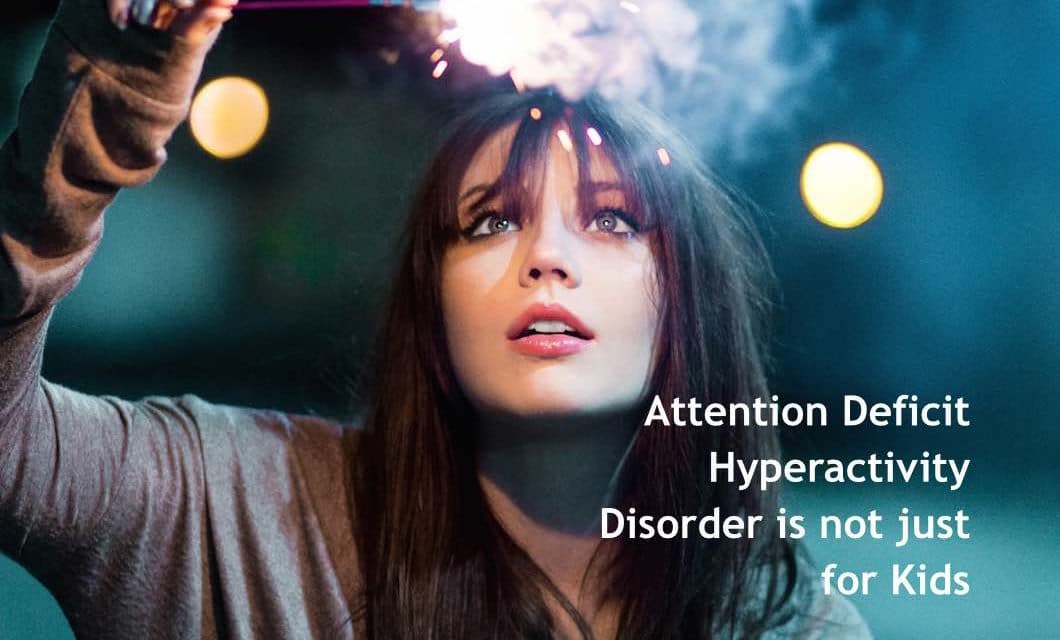Author
Rob Gandy I UK
Everyone will have heard about Attention Deficit Hyperactivity Disorder (ADHD) and most people will assume that this mainly relates to children, and is the cause of why children with the condition find school a challenge. Obviously, such children will grow into adults, and every adult who has ADHD will have had it as a child. While many kids will outgrow it, about 60% will still have it as adults. Adult ADHD is estimated to number about 4% to 5% of U.S. adults, and affect men and women equally1. However, few adults get diagnosed or treated for it.
Some adults may have been diagnosed and known it, but others may have not been diagnosed when they were young and only find out later in life. Therefore, it might be that you know some sufferers, but not realise that they have this problem. How do you recognise related symptoms? Well, everyone will be a bit different, but adults with ADHD may find it hard to: follow directions, or remember information, or concentrate, or organize tasks, or finish work on time1. Now do NOT suddenly self-diagnose and decide that YOU must have ADHD because you share these very problems. Being of the Boomer generation can influence how well any of us can do any of these, but this doesn’t mean that you have ADHD!

..Some adults may have been diagnosed and known it, but others may have not been diagnosed when they were young and only find out later in life.
Image by Paola Aguilar via unsplash.com
It has been found that adults With ADHD may have: a history of not doing well in school and underachieving; got into a lot of trouble; had to repeat a year at school; or even dropped out of school. The causes of ADHD are not clear, with factors that could be involved being2:
- Genetics. It can run in families, and genes may play a role.
- Environment. Certain environmental factors could also increase risk, e.g. exposure to lead as a child.
- Problems during development. If a person has had problems with their central nervous system at key points.
Adults with ADHD find that their symptoms/ condition can cause trouble in many parts of their lives, be it at home, at work, or in education. Specific challenges that they can have problems with are:
- Anxiety
- Chronic boredom
- Chronic lateness and forgetfulness
- Depression
- Trouble concentrating when reading
- Trouble controlling anger
- Problems at work
- Impulsiveness
- Low tolerance for frustration
- Low self-esteem
- Mood swings
- Poor organization skills
- Procrastination
- Relationship problems
- Substance abuse or addiction
- Low motivation
Treatment will clearly help, but sufferers also need to learn ways to manage their ADHD, i.e. learn to adapt. As a result many adults with ADHD develop their personal strengths and find success.
If you find that someone that you know has ADHD then what should you do? This will depend upon how close you are to him or her, as they may feel like they are constantly being criticized, nagged, and micromanaged. They don’t necessarily feel respected as an adult, and can find themselves avoiding their partner or saying whatever they have to in order to get them off their back. They probably wish that their partner/ close friend could relax a bit and stop trying to control every aspect of their lives.
So if it is you that is in a relationship with someone with Adult ADHD, you may feel lonely, ignored, and unappreciated. You will be tired of taking care of everything on your own and being the only responsible person in the relationship. You probably feel like you cannot rely on your partner, particularly as (s)he never seems keeps promises, forcing you to continually issue reminders and demands. Otherwise you just do things yourself, because it feels as if your partner just does not care. The real risk is that the feelings on both sides can become a destructive cycle, leading to no-one being happy.
It is probably the case that Boomers with Adult ADHD will have learned to manage their condition, and how to accommodate it in their relationship with their partner. Otherwise it might be that they separated or got divorced! However, it may be that you see that Adult ADHD could be an issue with a son or daughter, or indeed with a son-in-law or a daughter-in-law. If this is the case then appreciating that the symptoms and circumstances described above can lead to problems in relationships could help them better understand the impact of the condition and enable them to get help, and learn to manage it and live with it, for the benefit of all.






